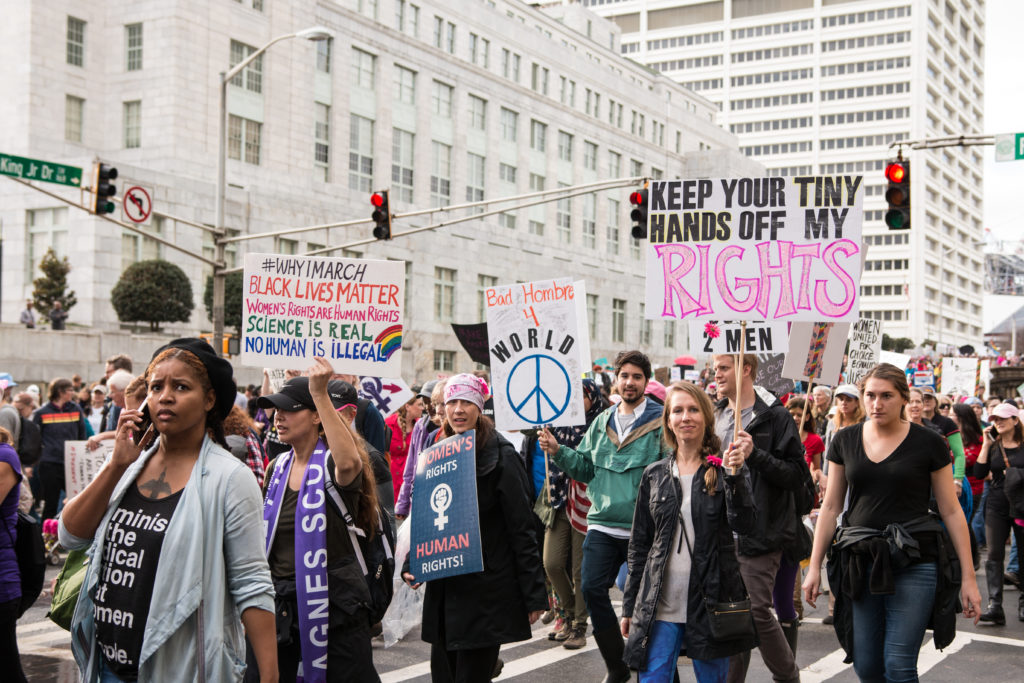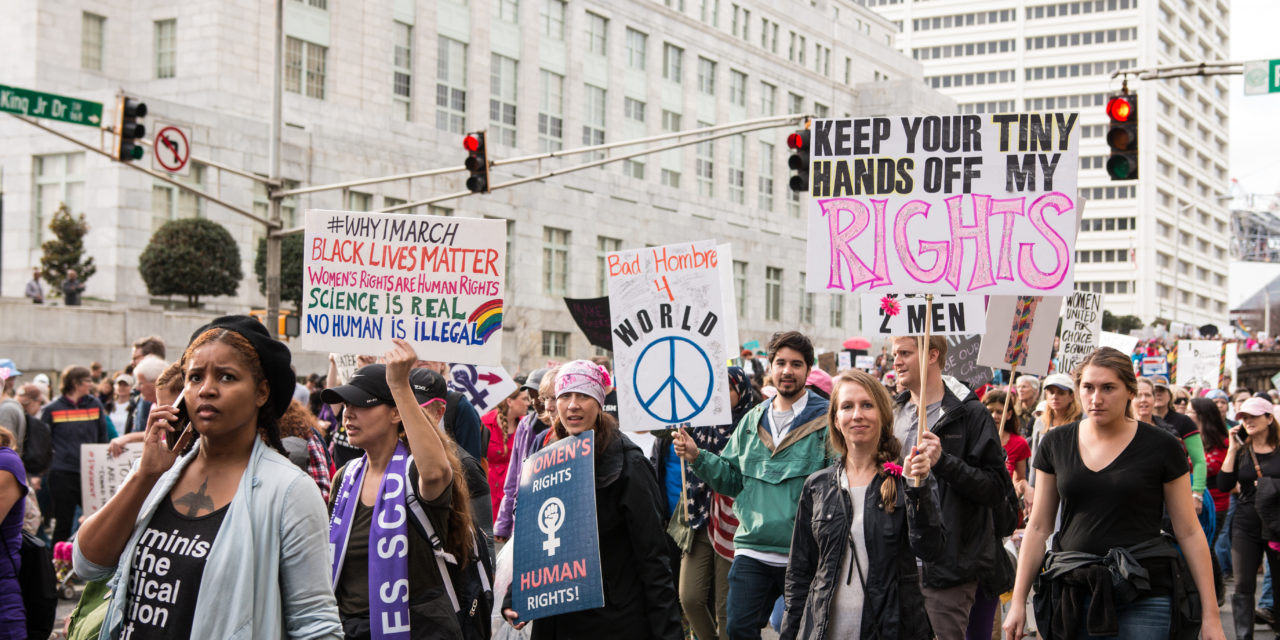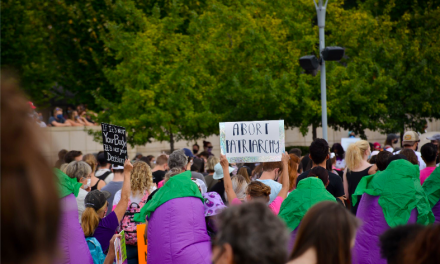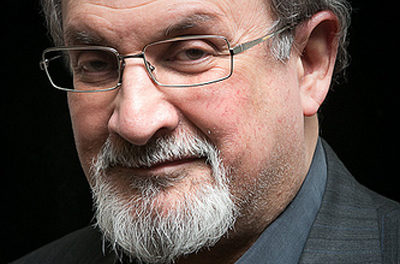
More than 100 Emory community members were among the thousands of protesters in Saturday’s Atlanta March for Social Justice and Women, one of several gatherings nationwide that called on President Donald J. Trump and his cabinet to focus on issues such as civil rights and reproductive rights. / Ruth Reyes, Photo Editor
More than 100 Emory community members joined thousands of protesters in the Atlanta March for Social Justice and Women Saturday. One of hundreds of demonstrations worldwide, the march called on President Donald J. Trump and his cabinet to focus on social justice issues such as reproductive and civil rights.
Approximately 60,000 people shut down the streets of downtown Atlanta as they marched from the Center for Civil and Human Rights to the Georgia State Capitol building. At the Center, they heard from local lawmakers and activists who encouraged battling leaders and policies that they said threaten rights of underrepresented groups.
Marchers from Emory attended to advocate for the protection of minority rights — women and LGBT and Islamic communities in particular — from the new presidential administration whose platform calls for legislation that they say could threaten these groups’ civil liberties and freedoms.
Students, faculty and alumni from across Emory advertised the event through flyers and Facebook events, organized transportation to the march and made signs for the protest in efforts led by Associate Professor in the Practice of Youth Education and Peacebuilding Beth Corrie, Assistant Professor of Philosophy Dilek Huseyinzadegan and Assistant Director of the Office of Residence Life Courtnay Oddman.
Three shuttles funded by several Emory offices, including ResLife and Emory Alumni Association, transported Emory affiliates from Clairmont campus to the Center for Civil and Human Rights, where the march began. All 250 spots on the buses were reserved by Friday, but only about 175 people took the shuttles Saturday, Corrie said. The Wheel could not independently confirm that number.
At the Center, speakers including U.S. Rep. John Lewis (D-Ga.), Georgia NAACP President Francys Johnson and Georgia House Minority Leader Stacey Abrams (D-Atlanta) encouraged demonstrators to fight for the rights of underrepresented populations.
“Sometimes you have to turn things upside down to set them right side up,” said Lewis, who recently called Trump’s election illegitimate. “We are fighting for our sisters, our mothers, our daughters, but we are also fighting for our brothers, our sons, for those who are not able to stand up for ourselves.”
Armed with colorful signs promoting environmental justice and reproductive and minority rights, demonstrators marched 1.7 miles to the Georgia State Capitol building. Several signs alluded to leaked Access Hollywood tapes in which Trump bragged about groping and kissing women or his comments calling Hillary a “nasty woman” during the final presidential debate. The sea of marchers chanted “Not one step back” and “Fifth district” — Lewis’ district, an area that includes Atlanta, which Trump recently called “crime infested.”
March co-organizer and Emory alumna Sheba Ehteshami (09C, 11PH) said that seeing the march supporters’ diversity was empowering.
“It’s very emotional to see so many different people from different walks of life find common ground in something so meaningful and purposeful like this,” Ehteshami said.
While marchers supported the common goal of sending a message to the new presidential administration, the content of that message differed depending on the protestor.
College senior Brianna Bellamy participated largely because she fears police officers’ relations with black communities might worsen under Trump, given that the new president promised to support law enforcement and end anti-police sentiments.
“What didn’t bring me out here to march?” Oxford College Assistant Professor of Psychology Jennifer McGee said, citing Trump’s campaign promise to end the Deferred Action for Childhood Arrivals (DACA) program — a memorandum instituted by the Obama Administration providing a temporary immigration benefit to adolescents and young adults, including undocumented students, who came to the U.S. illegally as children — and Trump’s civil rights policies as the main reasons for her participation.
College junior Jennifer Fundora called for Trump and his administration to address environmental issues. Fundora said she’s concerned because the new administration repeatedly denieed the realities of climate change.
Some Emory students and professors also traveled to Washington, D.C., to protest in the women’s march that drew over 500,000 protestors. According to The Washington Post, the more than 670 “sister marches” scheduled nationwide garnered an estimated more than one million participants.
Isabeth Mendoza contributed reporting.
Editor-at-Large | aokluge@emory.edu
Alex Klugerman is a senior from Rockville Maryland in the Goizueta Business School, majoring in Business Administration with concentrations in Marketing, Strategy Management Consulting and Film & Media Management. On the Wheel, he’s previously served as News Editor, Associate Editor and Interim Emory Life Editor. For his coverage of the Migos booking scam, he was selected as a finalist for the Society of Professional Journalist in the Breaking News Reporting category in the 2017 Region 3 Mark of Excellence Awards. He also placed first in the 2017 Georgia College Press Association’s Better Newspaper Contest in the category Best News Article Based on Investigative Reporting. Currently, he is involved in the Wheel’s fundraising and planning efforts to commemorate its 100th Anniversary. Outside of the Wheel, Klugerman has interned with CNN in their Mobile + TV Apps product management division and enjoys cycling and travel.






